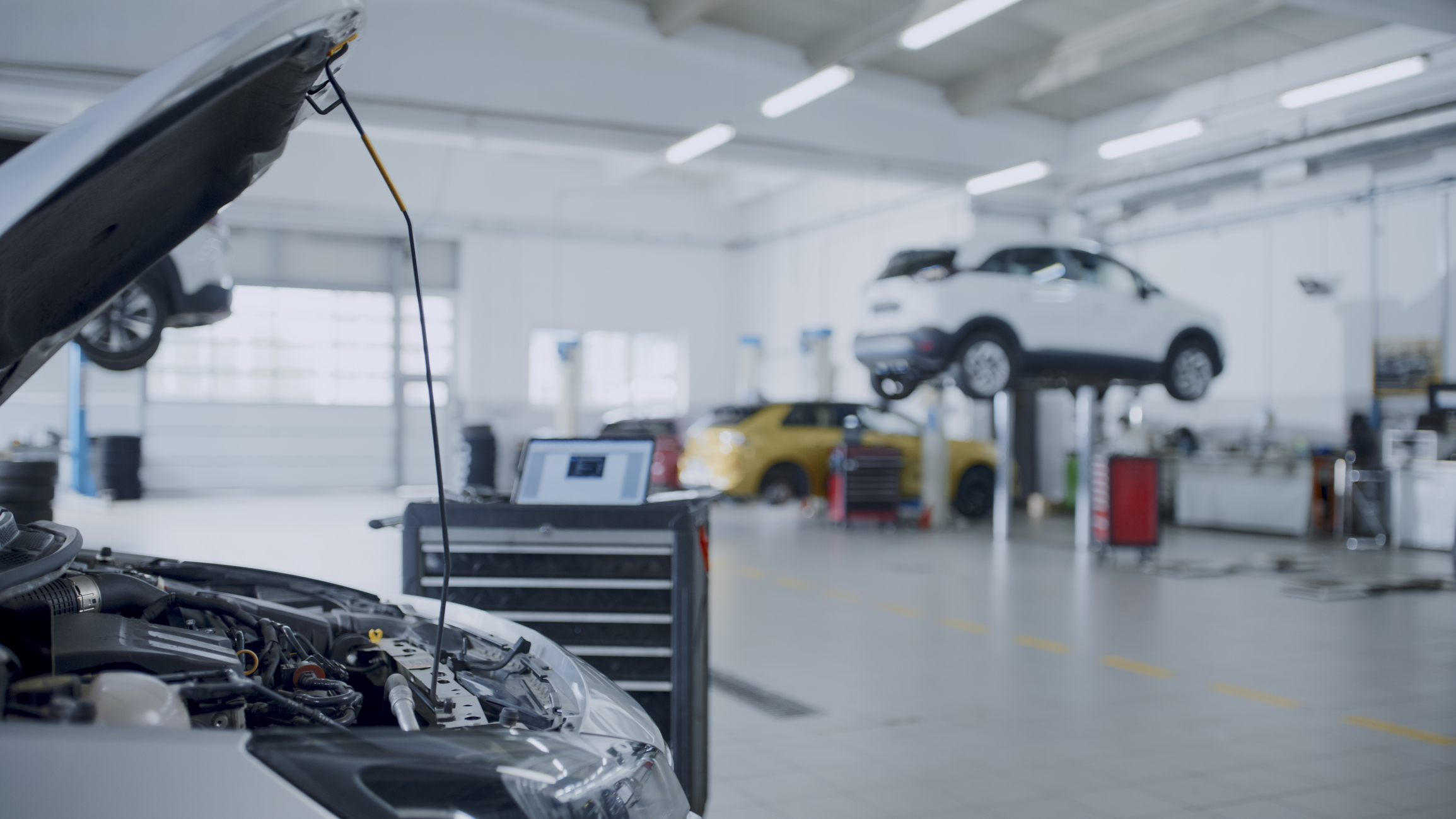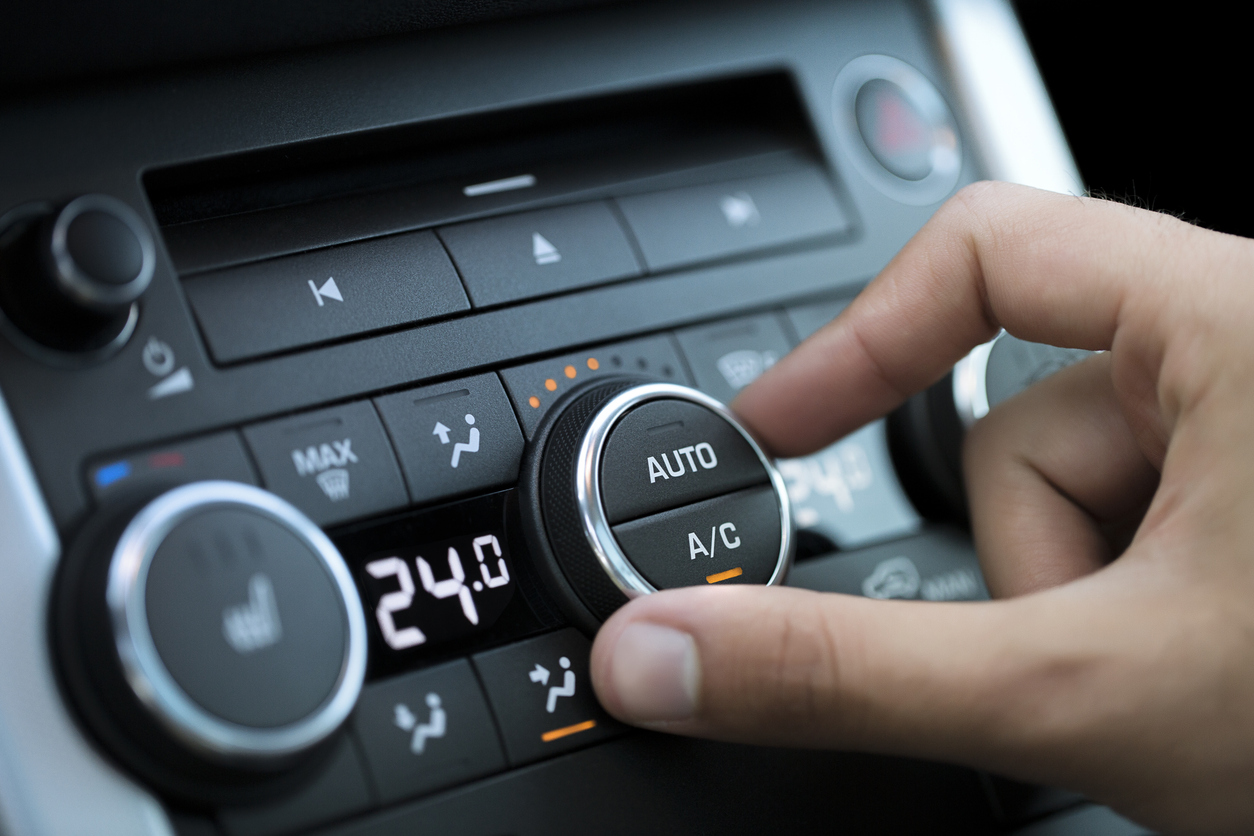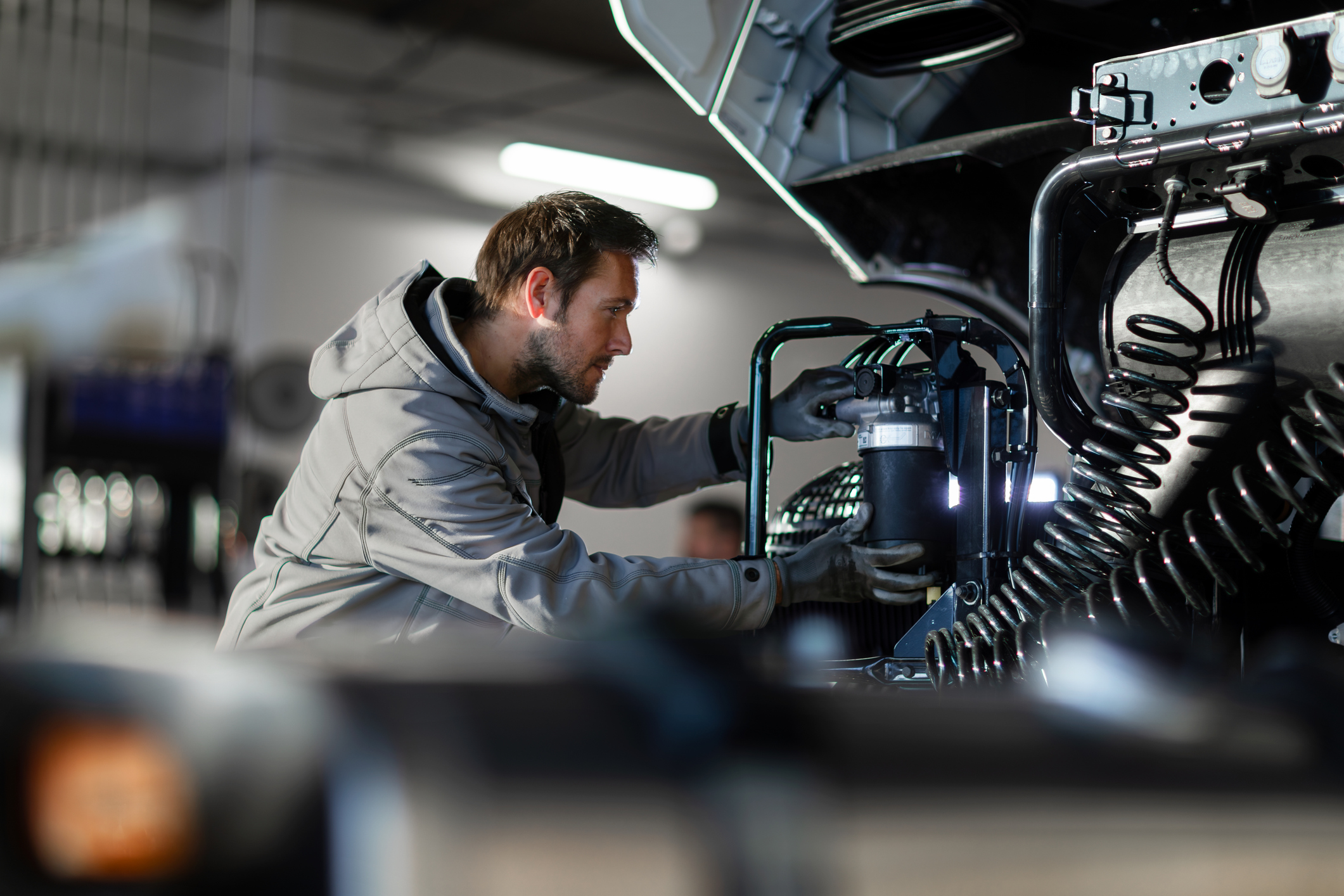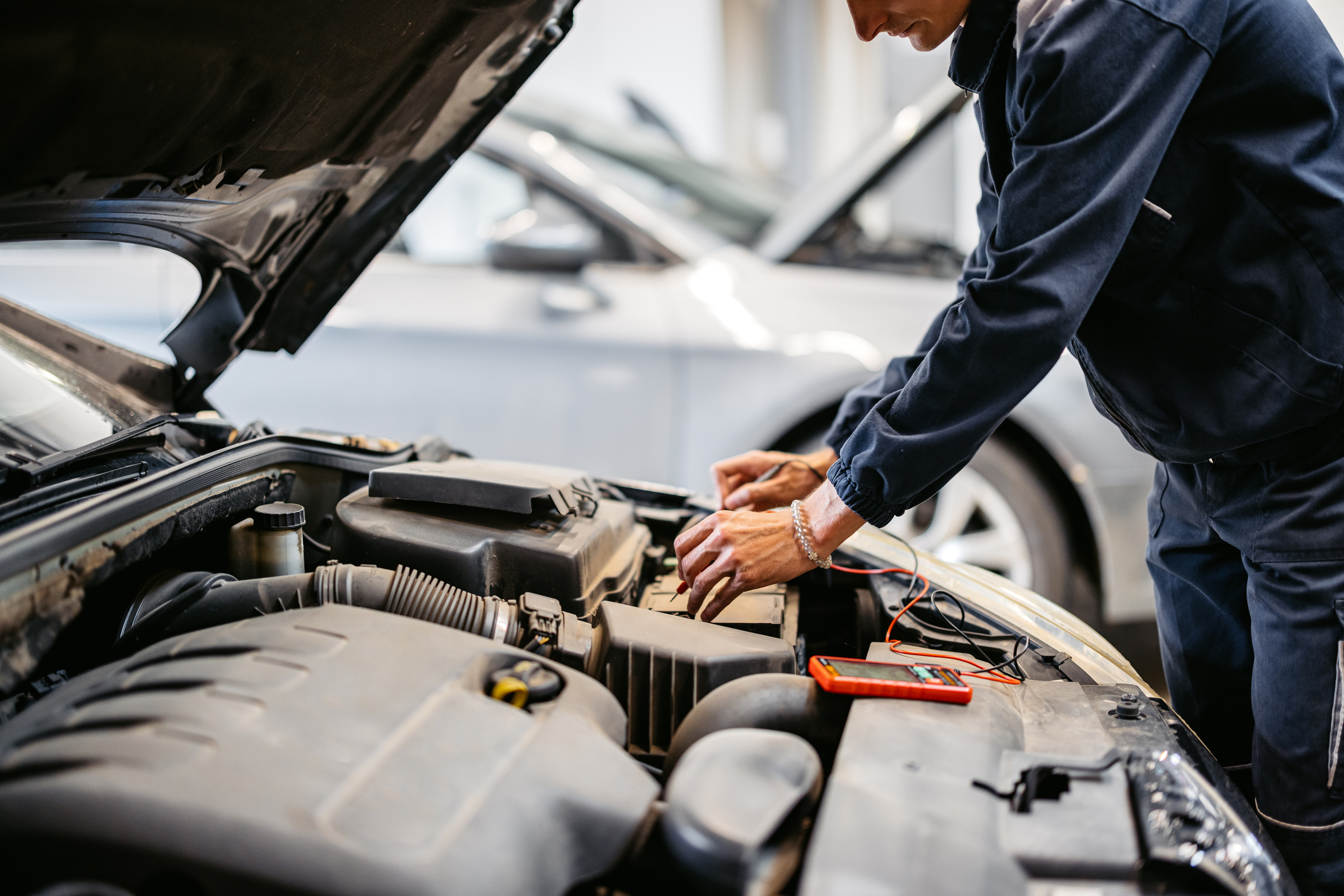
Book your service | Email: mga.repairs@gmail.com | Fax/Call us (02) 9708 4601
Book your service |
Email: mga.repairs@gmail.com |
Fax/Call us (02) 9708 4601
Blogs
Why Your Car AC Isn’t Cooling Properly – and How to Fix It

It is worthwhile to appreciate how an automobile air conditioner system works before coming to the nitty-gritty of troubleshooting. The main principle behind the working of the AC system in your car is compression of a refrigerant and passing it through a series of tubes and coils. There is nothing so easy about the process; it is a matter of delicate balance of chemical reactions and mechanical actions. When it goes round the refrigerant takes the heat away inside your car and radiates it away from the outside and your car is left cool and nice. This not only cools the air but also extracts water making the air drier hence the importance of your AC system in controlling the comfort level inside your car.
Key Components of Your Car AC
- Compressor: The heart of the AC system, the compressor pumps the refrigerant through the system. It pressurises the refrigerant, turning it into a high-pressure gas, and circulates it through the system. This component is powered by the engine’s drive belt and is essential for the AC system to function correctly.
- Condenser: This component cools the refrigerant and turns it from a gas into a liquid. It acts like a radiator, dissipating heat absorbed from the cabin into the atmosphere. The condenser needs to be clear of obstructions for optimal performance.
- Evaporator: Located inside the car, it absorbs heat from the car’s interior, cooling the air. The evaporator also removes moisture from the air, which is why water often drips from under your car when the AC is running.
- Expansion Valve: It controls the flow of refrigerant into the evaporator. By regulating the amount of refrigerant, it ensures that the system operates efficiently and maintains the desired cabin temperature.
- Refrigerant: The fluid that circulates through the AC system, absorbing and expelling heat. It undergoes phase changes from liquid to gas and back, facilitating the cooling process.
Common Reasons Your Car AC Isn't Cooling
Low Refrigerant Levels
One of the most common reasons your car AC isn’t cooling properly is due to low refrigerant levels. Over time, small leaks can cause the refrigerant to escape, reducing the system’s cooling capacity. These leaks can occur due to worn seals, cracks in hoses, or other component failures. A professional vehicle air conditioning service can check for leaks and recharge your system if necessary. Regular maintenance checks can help detect refrigerant loss early and prevent more serious issues.
AC Compressor Issues
The compressor is vital for the operation of your AC system. If it’s not functioning properly, the refrigerant won’t circulate, and your AC won’t cool effectively. Compressor issues can include electrical faults, worn-out clutch, or mechanical failure. These problems may manifest as strange noises, reduced cooling efficiency, or the AC not turning on at all. If you suspect a compressor problem, it’s best to seek professional car air conditioning repair near you to prevent further damage to the system.
Blocked or Clogged Condenser
The condenser can become blocked by debris, such as leaves and dirt, or clogged internally by corrosion or damaged fins. This blockage prevents the condenser from effectively cooling the refrigerant, leading to poor AC performance. Regularly cleaning the area around the condenser and ensuring it’s free from obstructions can maintain its efficiency. In more severe cases, replacing a corroded or damaged condenser may be necessary to restore optimal cooling.
Faulty Fans
Your car’s AC relies on fans to move air over the condenser and evaporator. If these fans aren’t working properly, the system won’t cool effectively. Issues with the fans could stem from electrical problems, broken blades, or motor failure. Check for any obstructions or damage to the fans, and replace them if they’re not working. Ensuring the fans are operational is critical for maintaining the airflow required for proper system function.
DIY Troubleshooting Tips
While some AC issues require professional intervention, there are a few troubleshooting steps you can try on your own. These steps can help identify minor problems and potentially save you time and money on unnecessary repairs.
Check and Replace the Cabin Air Filter
A clogged cabin air filter can restrict airflow, making your AC less effective. Over time, dust, pollen, and other contaminants can build up, impeding airflow and reducing cooling efficiency. Check your car’s manual to locate the cabin air filter, and replace it if it’s dirty. Regular replacement not only improves AC performance but also enhances the air quality inside your vehicle.
Inspect and Clean the AC Vents
Dust and debris can accumulate in the AC vents, blocking airflow. Use a vacuum or a can of compressed air to clean out the vents. Keeping the vents clean ensures that air can flow freely into the cabin. Regular cleaning can prevent blockages and maintain the system’s efficiency, ensuring consistent cooling.
Examine the AC Belt
If the AC belt is worn or loose, it might affect the compressor’s performance. A loose or damaged belt can slip or break, stopping the compressor from functioning. Check the belt for signs of wear and tension, and replace it if necessary. Ensuring the belt is in good condition is crucial for the efficient operation of the AC system.
When to Seek Professional Help
While some issues can be resolved with a little DIY effort, others require the expertise of a professional. If your car AC still isn’t cooling after trying the above steps, or if you suspect a more serious issue like a faulty compressor or refrigerant leak, it’s time to consult a vehicle air conditioning repair specialist. Ignoring these problems can lead to more severe damage and costly repairs.
Choosing the Right Auto Air Conditioning Service
When selecting a car air conditioning repair service, look for a reputable provider with experience in handling auto air conditioning problems. Check online reviews, ask for recommendations, and ensure the service is certified to handle refrigerants safely. A qualified technician will have the necessary tools and expertise to diagnose and repair complex AC issues, ensuring your system is back to optimal performance.
Conclusion
An effective car AC is the must required to stay relaxed particularly in hot climate. With knowledge of frequent causes of AC and when to call an expert, you will be able to maintain the good condition of the air conditioning system in your vehicle. Be it a minor repair as disposing a filter or a complex one, having the problem repaired early will make your car cool and comfortable throughout the year. A proper maintenance and regular interventions not only increase life span of your AC system, but also makes your driving more enjoyable.
Share this article
Recent Blogs
- All Posts



